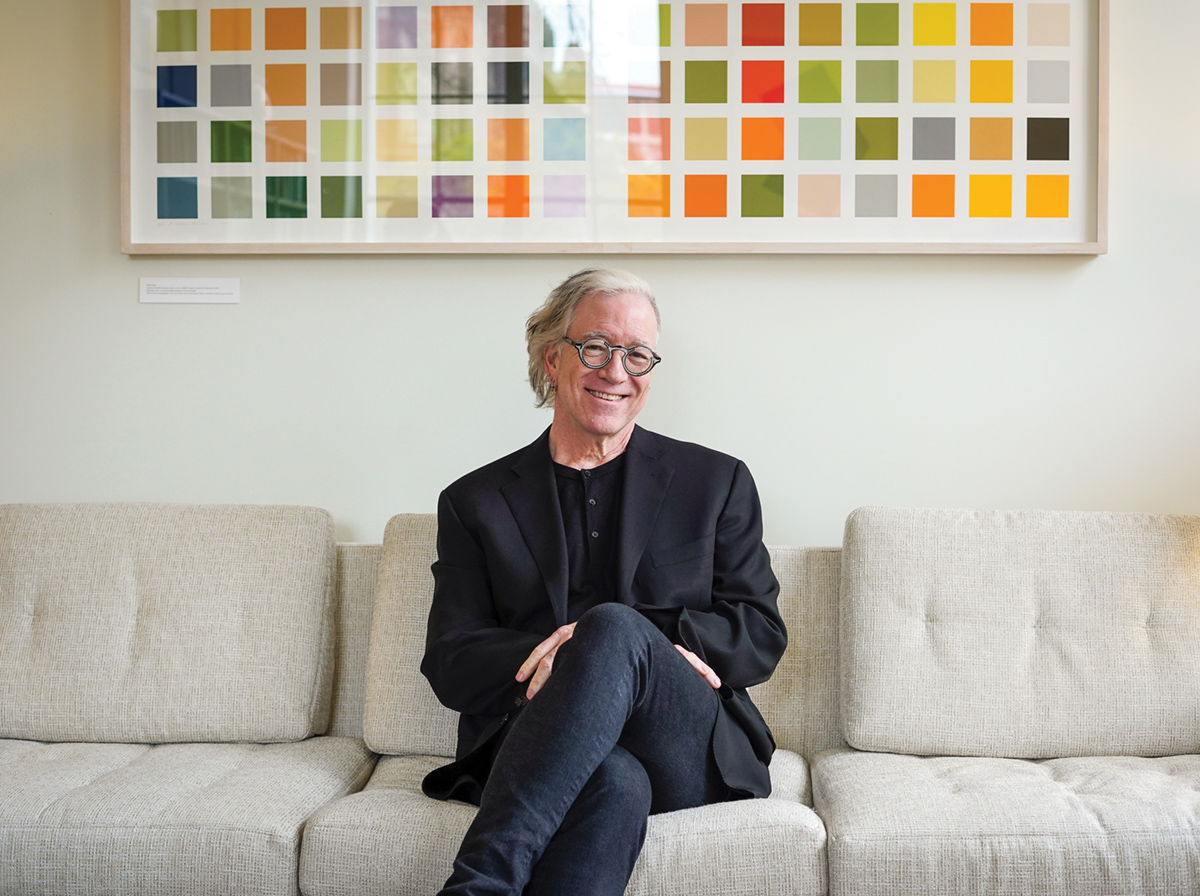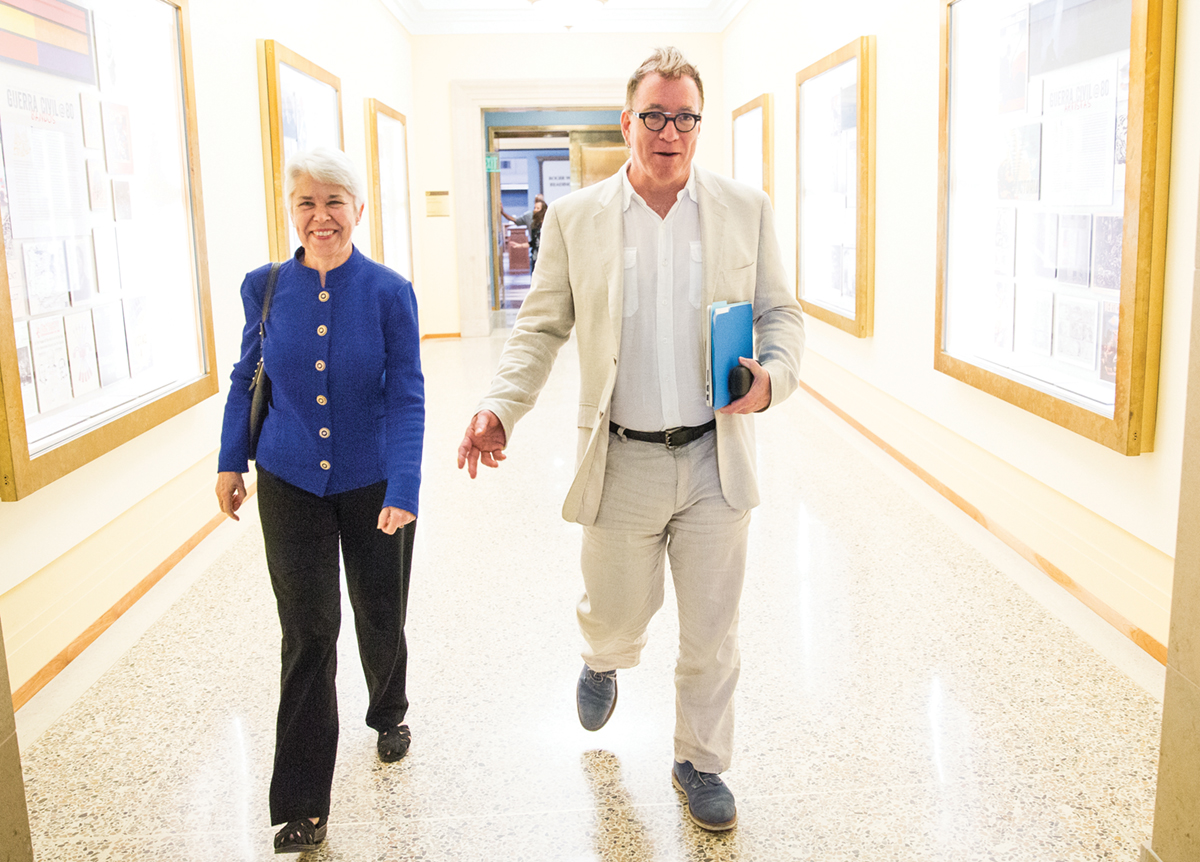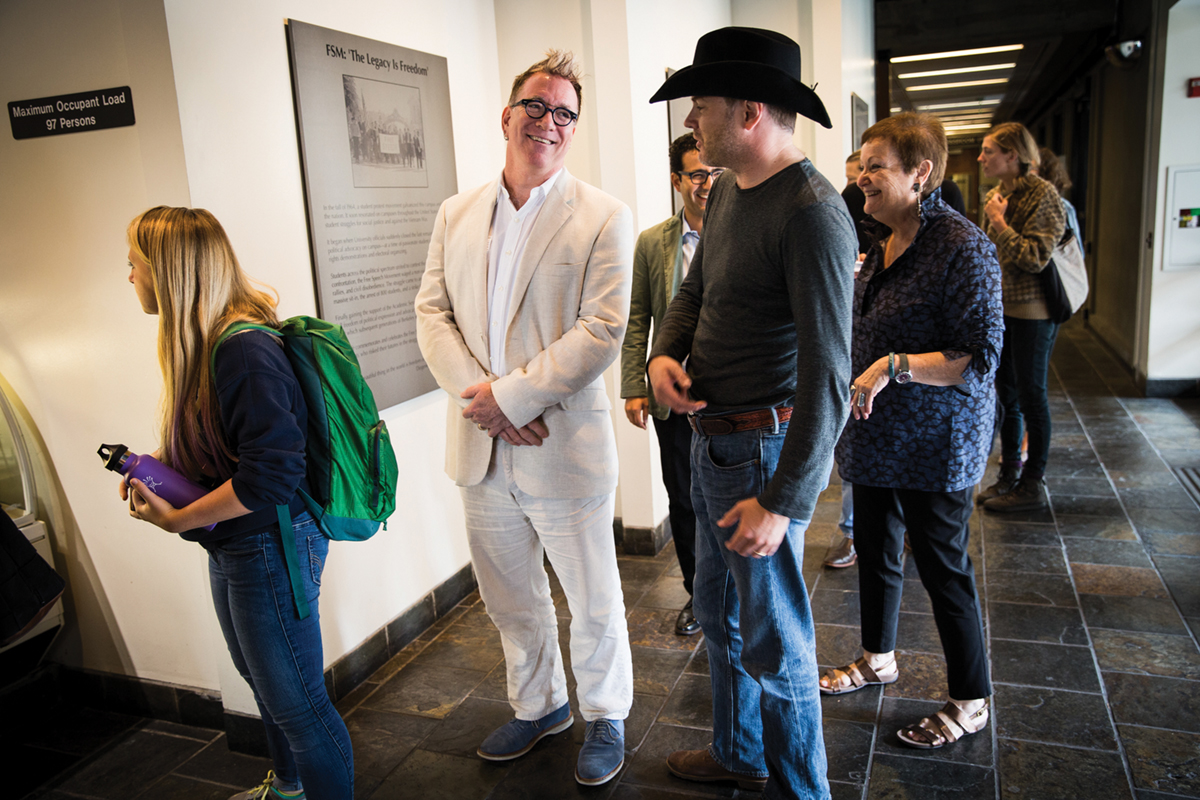
Jeff MacKie-Mason has seen the future — of libraries.
UC Berkeley’s forward-thinking university librarian is certain that society’s information gateways, which have persisted for thousands of years, are poised for an even greater impact.
“I think the glory years of libraries are coming,” he says. “We’re in a period of transition, where that isn’t entirely obvious to people, and there’s a lot of thinking that libraries are merely book museums that we don’t need anymore. But what they’re missing is that we are intermediaries between people and information resources, helping people find, evaluate, and use information. And that’s going to be more essential than ever.”
MacKie-Mason is certainly in a position to know, having spent nearly a decade leading one of the world’s preeminent university libraries. He’s also a professor in UC Berkeley’s School of Information and an affiliate professor in the Department of Economics.
Under MacKie-Mason’s direction, the UC Berkeley Library has implemented innovative research, data, and digitization initiatives. He has spearheaded record-breaking fundraising campaigns at a time of lean state funding. And as a lead negotiator for the University of California system, he has helped shatter barriers in the world of scholarly publishing.
As his June 30 retirement approaches, MacKie-Mason has also been taking time to look back. We caught up with the celebrated scholar to hear more about his time on campus, his passion for piano, and his thoughts on the past, present, and future of libraries.
Describe the UC Berkeley Library in three words.
The information gateway.
How have you seen the Library evolve in your time at Berkeley?
There have been substantial changes in the way we do our work, which is to say, the way we deliver our services. We’re a service organization, supporting faculty, students, and other scholars. The way we’ve been doing that is always changing, of course, as the world changes. But it has changed particularly rapidly recently, in part because of the pandemic, but also because of prior trends. We’re moving toward more online and remote service provision. We learned a lot during the pandemic lockdown about how we could provide those types of services. And we found that people appreciated the change.
We’ve also moved toward a more complete integration of digital information services with traditional analog information services. Until the 1970s and ’80s, everything was published in print, and most of our collections were built around that. Now much more of the information resources people use are available digitally, and people often want them digitally. Initially, libraries were figuring out how to deliver digital services as a separate type of service. Now it’s really just become: We’re delivering services — some of them are print, and some are digital.

What is the biggest misconception that people have about the Library?
One misconception is that the purpose of libraries is ownership, when, in fact, I think their purpose is access. That is to say, we don’t exist for the purpose of buying a big pile of books. We exist to make information available, to help people find that information and use it. Part of that we do by building collections. Because having local access matters. But that’s only one type of access. Particularly in the networked world that we live in, there are so many other ways to access information. Our job is to help people connect with the information that will most advance their learning, most advance their research, and do the greatest good for the world.
What are the key challenges and opportunities for libraries in the coming years?
We are at the dawn of what I refer to as the second age of information. The first age of information in the Western world began with the development of the movable-type printing press, which started a 600-year-long transformation of Western civilization through greater accessibility of information.
The internet is the printing press on steroids. It does the same thing but more so, lowering the cost of reproducing information and distributing it on a mass scale. This is transforming society, and will continue to do so at least as much as the printing press. We’re just at the beginning of that. Social media, for example, has had a huge impact on our lives. Right now, generative artificial intelligence is what everybody is talking about. The amount of change in the way we think about the world, how we do education, how we do politics, because of the emergence of generative AI in just the last 18 months, has been explosive.
What does this mean for libraries? It means information services and information professionals are more important than ever. Because every profession, everything we do in our lives, is being driven by access to information, the use of information, and the reliability of information.

Share a moment from your time at the Library that stands out as especially memorable.
A week after I started as university librarian, my wife went into Stanford Hospital for open-heart surgery, and there were complications. She was there for about a month. The support from the team at the Library was just remarkable. I was obviously very distracted. I was spending a lot of time down at Stanford, but I just had incredible warmth and support and understanding from the folks here. That was really very heartwarming.
What is something you’ve learned through your interactions with Library staff?
Library employees are dedicated to service. They care about what they are doing to advance knowledge, to advance education, and to advance human progress.
What are you most looking forward to about retirement?
I have three young grandchildren between the ages of 1 ½ and 5. I’m really looking forward to spending a lot more time with them. Piano is another passion. It’s probably close to 20 years now that I’ve had the dream of being able to be a full-time pianist. Now I’ll get to do that!
Is there a particular piano piece you’re interested in learning?
At the moment, I’m finishing up learning “The Tempest Sonata” (Piano Sonata No. 17) by Beethoven and also a couple of violin and piano duet sonatas by Mozart. I’m about to start a ragtime piece by Gershwin. It’s a two-piano piece that I’m about to learn with one of my friends.
Finish the sentence: The thing I’ll miss the most about working at the Library is …
Being in daily service to a community of some 50,000 scholars whose goal in life is to make the world a better place.
This Q&A was edited for brevity and clarity.
Empower future university librarians to continue this pioneering work by making a gift to the Jeff MacKie-Mason Library Fund for Excellence and Access at ucberk.li/jmm-fund.